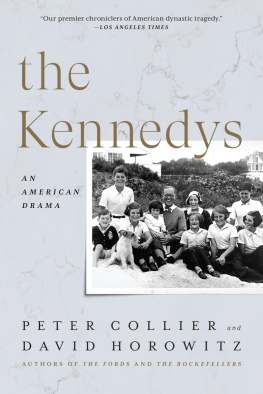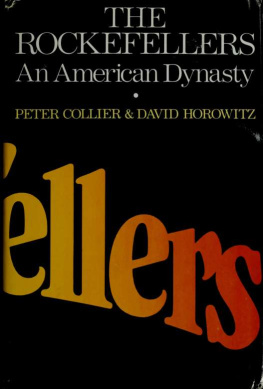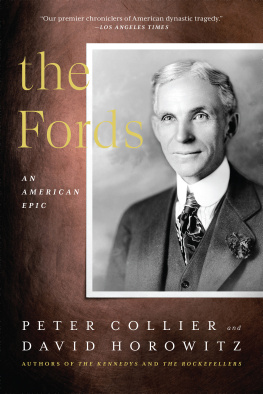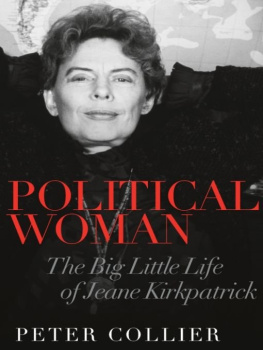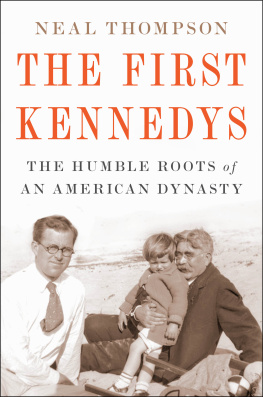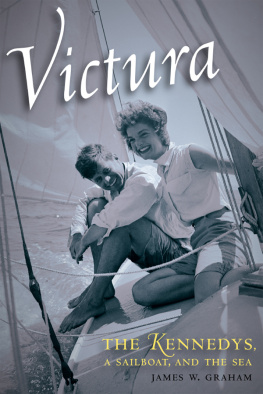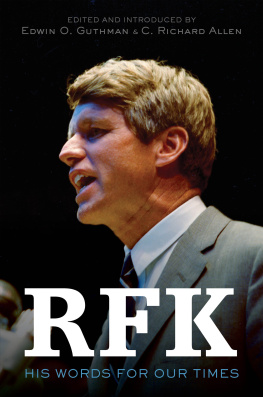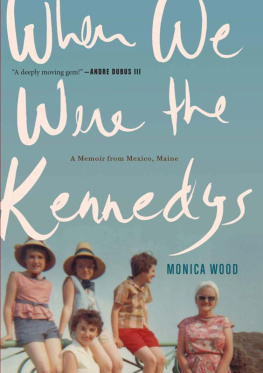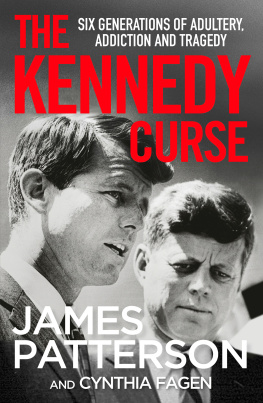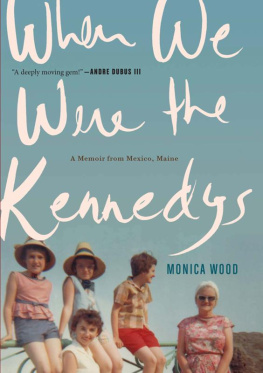Copyright 2021, 2002, 1984 by Peter Collier and David Horowitz
All rights reserved. No part of this publication may be reproduced, stored in a retrieval system, or transmitted, in any form or by any means, electronic, mechanical, photocopying, recording, or otherwise, without the prior written permission of Encounter Books, 900 Broadway, Suite 601, New York, New York, 10003.
Second American edition published in 2021 by Encounter Books, an activity of Encounter for Culture and Education, Inc., a nonprofit, tax-exempt corporation.
Encounter Books website address: www.encounterbooks.com
Manufactured in the United States and printed on acid-free paper.
The paper used in this publication meets the minimum requirements of ANSI/NISO Z39.481992 (R 1997) (Permanence of Paper).
First paperback edition published in 2002.
First paperback edition ISBN: 978-1-89355-431-3
Second paperback edition published in 2021.
Second paperback edition ISBN: 978-1-64177-193-1
Second paperback edition eISBN: 978-1-64177-194-8
LIBRARY OF CONGRESS CATALOGING-IN-PUBLICATION DATA IS AVAILABLE
PROLOGUE: APRIL 1938
I T WAS A MOMENTARY PLATEAU in Europes long slide toward war. Hitler had absorbed Austria and was eying Czechoslovakia. Roosevelt, having abandoned any hope of convening a peace conference in Washington, was looking for a coherent policy. British Prime Minister Chamberlain had suffered setbacks in his appeasement strategy, but continued to believe that rational men will agree to go along if the deal offered them is sweet enough. Joseph P. Kennedy was on his way to Windsor Castle to visit the King and Queen.
It was less than a month since he had walked out of the embassy in top hat and cutaway, climbed into the ornate ceremonial coach, and ridden to Buckingham Palace to present his credentials as the new American Ambassador to the Court of St. Jamess. In the intervening weeks he and his family had taken England by storm. His brashness even more than his truculent isolationism had made him the talk of the diplomatic community. His wife, Rose, had been taken up by London society, sweet revenge for someone whod often felt the sting of being excluded by the proper Bostonians back home. And the nine winsome Kennedy children had been photographed and written about as if they were some remarkable, very American experiment in genetics. In one breathtaking move the Kennedys had become Americas first family abroad. The invitation to spend a weekend with the King and Queen was final proof that they had indeed arrived.
As their limousine pulled into Windsor Park, Joe and Rose drank in the royal details like tourists. The park looked like a forest in some old English ballad; the castle itself had an intentional magnificence unmatched by anything theyd ever seen in all their travels. As they were shown inside, they saw vaulted ceilings, furniture upholstered in red damask, gold ornaments, and liveried servants moving with silent precision down the long hallways. Their suitcases were deposited in a suite they later learned had once been Queen Victorias private chambers. The peruked footman attending them looked like a relic from the British Museum.
Dinner itself was the kind of occasion Joe Kennedy likeda banquet of anecdotes and impressions that could be passed on to his children like the handwritten notes of commendation he solicited from President Roosevelt and photographs of himself posed beside the famous. Prime Minister Chamberlain and his wife were there, along with the new Foreign Minister, Lord Halifax, and his wife, and the Queens relatives Lord and Lady Elphinstone. When someone mentioned the painting of Victoria wearing the Garter, the royal couple discussed the origins of the motto of the Order: Honi soit qui mal y pense. Later, Kennedy gossiped with the Queen about American movies while the King swapped insights with Rose about child rearing. Eventually the King began to give the Queen significant looks that an imposing floral centerpiece prevented her from catching, which forced him to make a joke of the royal nod that traditionally signaled that dinner was over. After the ladies withdrew to a sitting room, the gentlemen remained behind with brandy and cigars, allowing their talk to turn to war. Prime Minister Chamberlain still believed the conflict could be avoided and Kennedy agreed with him; the King hoped they were right.
Later on, after everyone else had retired, Rose Kennedy lay in the canopied bed so high off the floor that a stepstool was required to climb up into it. She listened as the Windsor tower clock tolled eleven and the guard changed in the courtyard below her window. Feeling like an American Cinderella, she tried to fix the details of the evening in her memory; yet the moment was so special, such a dramatic caesura in the rush of their lives, that she could hardly force herself to realize she was really there: I thought I must be dreaming that I, Rose Kennedy, a simple young matron, am really here at Windsor Castle, a guest of the Queen and two little Princesses. Although not given to sentimental backward looks at his life, Joe Kennedy too had experienced something like this sudden sense of perspective when they were dressing for dinner, although he expressed it with his usual directness: Well, Rose, this is a hell of a long way from East Boston.
Indeed, the distance the Kennedys had come in half a lifetime was almost incalculable. Their grandparents had fled Ireland for America in steerage; they returned to England in first class, official representatives of an even greater power. Their grandparents had arrived in the New World anonymous and poor; they returned to Europe wealthy and famous. Yet the distance they had come involved more than history or geography. Character was also important, character and ambition. That they had gotten anywhere at all, Rose would have been the first to acknowledge, was because of her husband, one of the most talked-about men in America.
Not yet fifty years old, Joe Kennedy had already gone through several careers, always moving forward, pushing toward the center of things, grasping for more. He had been an operator on Wall Street, a self-made man who accumulated one of the largest private fortunes of the twenties. He had gone to Hollywood and become one of the first tycoons, making movies and engineering some of the mergers that transformed the film world from a colony into an industry. He had entered politics and become one of the most controversial personalities of the New Deal, a power in the Democratic Party and a friend of the President. Rumors of numerous extramarital affairs, illicit business dealings, and even ties to crime only added a piquant touch of mystery to his reputation and made him seem all the more romantic, Gatsbyesque.
Contemplating this remarkable rise, Fortune magazine had written: The legends of Joe Kennedy make him at once the hero of a Frank Merriwell captain-of-the-nines adventure, a Horatio Alger success story, an E. Phillips Oppenheim tale of intrigue, and a John Dos Passos disillusioning report on the search for the big money. The truth makes him the central character of a picaresque novel of a sort not yet written.
Picaro: the hero of a picaresque novel; a rogue or adventurer who lives by his wits, working his way through various strata of society, worrying less about morality than mobility; part of everything but ultimately belonging nowhere. In many ways the definition fit. Joe Kennedys whole life had been one of restless movement, an attempt to transcend ethnic assumptions while striking out into terra incognita where no Irish Catholic had yet been. For some other East Boston boy, the Court of St. Jamess might have been the culmination of ambitionminister to the nation that had oppressed his forefathers, occupant of Americas leading social and diplomatic position abroad. But even as he spent this foggy April weekend at Windsor, the picaresque tale was continuing to unfold as Kennedy intrigued to position himself as a candidate for the White House if Roosevelt decided against a third term.

